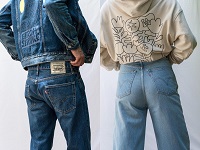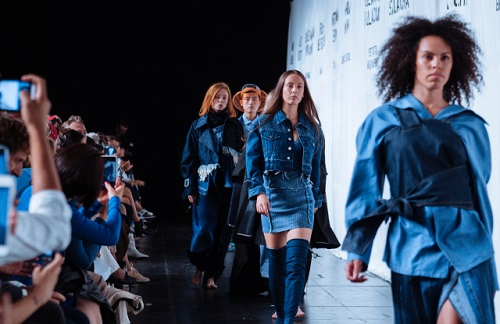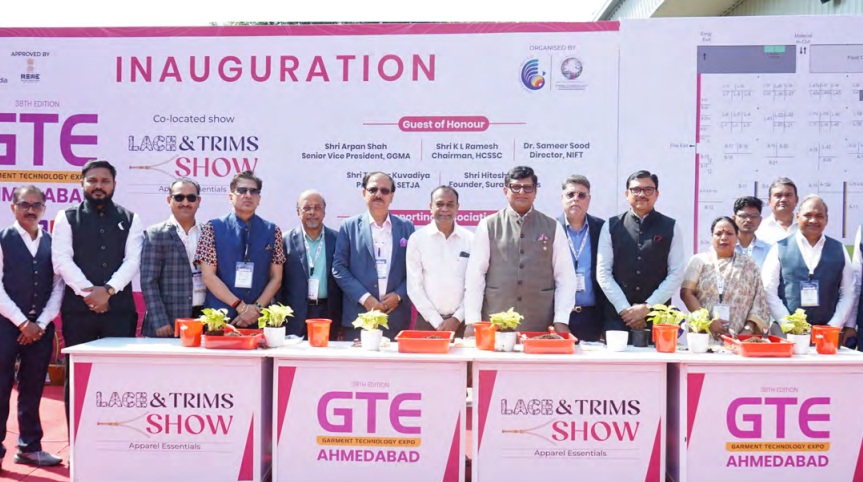 One of the most polluting industries, denim has been closely watched for its adverse environmental impacts. This has led the industry to accelerate sustainability innovations and inspire the fashion industry towards a greener and cleaner future.
One of the most polluting industries, denim has been closely watched for its adverse environmental impacts. This has led the industry to accelerate sustainability innovations and inspire the fashion industry towards a greener and cleaner future.
Over the years, denim industry has launched numerous innovations to reduce its reliance on virgin cotton, harmful chemicals and dyes, excessive water use, says a WWD report. Turkish denim mill Isko has fully traceable and holistically responsible denim products under its ‘Responsible Innovation’ approach. Its latest innovation is a fully responsible fabric initiative called R Two which emphasizes on denim fabrics made from recycled and reused materials. Like Isko, Lenzing has developed Tencel and Refibra fabrics, which are great alternatives to cotton. Similarly, Swedish pulp maker Re:newcell has developed Circulose fabric to minimize its environmental impact.
News ways to make denim
Along with sustainable fabrics, the denim industry needs to find cleaner ways to make jeans, believes Nicole Murray, Founder, N-ovative. The industry can reduce excess water usage in processes by scrutinizing fiber creation process. Innovations in chemicals and finishing can also help reduce environmental impact.
usage in processes by scrutinizing fiber creation process. Innovations in chemicals and finishing can also help reduce environmental impact.
The denim industry has also been an innovator of many technologies. Technologies like Calik’s Washpro extends its denim’s life and then there are Jeanologia’s laser and eco-finishing technologies and a program called ‘Environmental Impact Number’ that helps laundries and garment finishers measure denim data. Denim pioneer Levi Strauss & Co’s industrial garment finishing methods also help the denim mill to reduce water usage at its laundries by as much as 93 per cent.
Much scope for improvement
Ebru Ozkucuk Guler, Senior Corporate Social Responsibility and Sustainability Executive, Isko believes, despite innovations, there is still a lot of scope for improvement across all stages, especially for brands and retailers. Guler advises all players to contribute to sustainable change for creating the most responsible and innovative product from farm to fabric.
At its launch in July 2019, The Jeans Redesign initiative had only 16 companies as members. Today, the figure has tripled to 53 players across the value chain, including heritage brands like Gap, fabric mills Advance Denim, and manufacturers including Saitex, signaling what Francois Souchet, Head, Make Fashion Circular, called “broader conversations on circular design”. The initiative aims to encourage denim players improve garment durability, material health, recyclability and traceability by adhering to strict wastewater guidelines from chemical management standard-setting body Zero Discharge Hazardous Chemicals.
The Make Fashion Circular initiative also demands third party verification from denim companies on data. These companies have to report on compliance to required standards on the Make Fashion Circular website. The initiative is yielding concrete results — with redesigned denim from Mud Jeans, Fairblue and Outland Denim being introduced in the market.
Innovations in design and durability
To reduce carbon emissions across the industry, denim experts are urging brands to design better denims, and consumers to wear them longer. Paul Dillinger, Vice President and Head-Global Product innovation, Levi Strauss & Co believes it is difficult for the industry to engineer these values into other products and sectors of the industry. To achieve this, the industry needs to strengthen its focus on issues like climate change and pollution.












